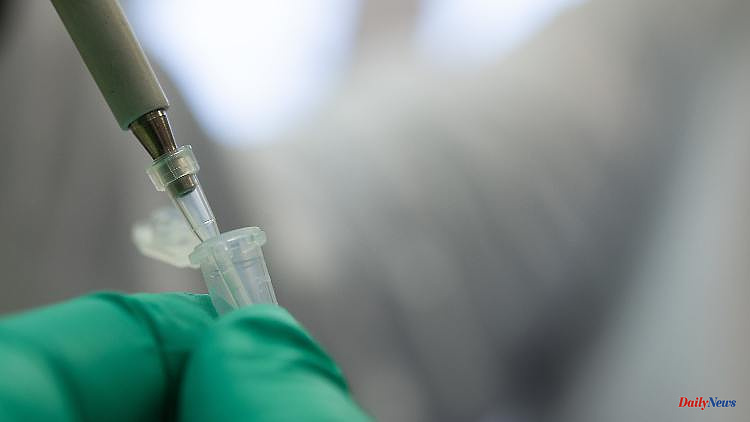The pandemic has already shown several times how quickly corona variants can be replaced by mutants. It should be a matter of weeks before new omicron sublines become established.
According to the Robert Koch Institute (RKI), a renewed increase in corona infections in Germany is possible as further omicron sublines spread. It is expected that the subvariants named BA.4 and B.5 will spread more, "so that there can be an overall increase in the number of infections and a renewed increase in infection pressure on vulnerable groups of people as early as summer," warned the RKI in its weekly report to Covid-19.
Seasonal effects - which actually slow down the virus a bit - could not compensate for the spread of these variants if rules of conduct are no longer observed. "The currently strongest growth is shown by the proportion of sublines BA.4 and BA.5," wrote the RKI. The result: In just a few weeks, these pathogens could make up the majority of the evidence.
According to the report, BA.5 was found in every tenth sample during investigations from the week before last - the doubling continued from week to week. The proportion of BA.4 is given as 2.1 percent, which is also roughly double the previous values. The information is based on a random sample, not all positive cases are examined for variants.
According to experts, so-called immune escape plays a role in the advantage that BA.5 has over the previous omicron sublines. This means that the viral genome has changed so that it evades antibodies from vaccinated and recovered people better. The good news: Even if there are concerns about a possible increase in the severity of the disease, according to reports from Portugal, the RKI has not yet seen any evidence of this. The data so far did not indicate that infections with BA.4 or BA.5 caused more severe disease courses or proportionately more deaths than the sublines BA.1 and BA.2, the institute wrote. These had caused the past waves.
BA.2 was recently found in almost every positive sample that was included in the investigation - the value has now dropped to 87.5 percent. The nationwide seven-day incidence increased last week compared to the previous week for the first time since mid-March (29 percent), the RKI stated. It spoke of an increase in the number of infections transmitted in the past week by around 50,000 cases compared to the previous week. So far, however, there has been no talk of a trend reversal in the situation in hospitals: According to the RKI, the burden on the capacities of the healthcare system is continuing to decrease. Most of the data in the report relates to last week.












